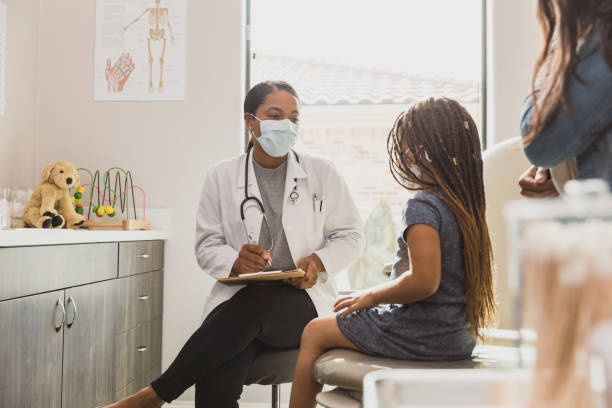Girls go through a lot of changes as they grow up, and with these changes come unique health concerns. While it’s important to see a doctor if you’re experiencing symptoms, it’s also important to be aware of the signs of common health problems. In this article, we’ll provide a guide for girls to help them identify common health problems and know when to seek medical attention.
Menstrual Problems
Many girls experience menstrual problems, such as irregular periods, painful cramps, pcosco or heavy bleeding. These symptoms may be a sign of an underlying condition, such as endometriosis or polycystic ovary syndrome (PCOS). Girls should track their menstrual cycle and note any changes or symptoms they experience. They should also discuss any concerns with their healthcare provider.
Skin Problems
Acne is a common problem for many girls, and it can be frustrating and embarrassing. Other skin problems, such as eczema, psoriasis, or hives, may also occur. These conditions may be related to hormonal changes or allergies. Girls should pay attention to any changes in their skin and discuss any concerns with their healthcare provider.
Mental Health Problems
Girls are at increased risk for mental health problems, such as depression, anxiety, or eating disorders. These conditions may be related to stress, hormonal changes, or social pressures. Girls should pay attention to their mental health and seek help if they’re struggling with their emotions or behaviors. They should talk to a counselor or therapist if they’re experiencing symptoms of a mental health problem.
Reproductive Problems
Reproductive problems, such as vaginal infections or sexually transmitted infections (STIs), may occur in girls who are sexually active. These conditions may cause symptoms such as itching, burning, or discharge. Girls should be aware of the symptoms of STIs and discuss any concerns with their healthcare provider. They should also practice safe sex by using condoms and getting regular STI testing.
Bone Problems
Girls are at risk for bone problems, such as osteoporosis, if they don’t get enough calcium and vitamin D. These conditions may cause symptoms such as back pain, fractures, or loss of height. Girls should eat a balanced diet that includes plenty of calcium and vitamin D. They should also engage in weight-bearing exercise, such as walking or running, to help build strong bones.
Respiratory Problems
Respiratory problems, such as asthma or allergies, may occur in girls who have a family history of these conditions. These conditions may cause symptoms such as coughing, wheezing, or shortness of breath. Girls should be aware of the symptoms of respiratory problems and discuss any concerns with their healthcare provider. They should also avoid exposure to triggers, such as cigarette smoke or pollen.
In conclusion, there are many health problems that girls may experience, and it’s important to be aware of the signs of these conditions. By paying attention to their bodies and discussing any concerns with their healthcare provider, girls can identify common health problems and receive appropriate treatment. It’s important to prioritize your health and to seek help if you’re experiencing symptoms. By doing so, you can maintain good health and live a happy, healthy life.
If you want to get more information women health then techbusinesinsider.com provides you all information women health.









































